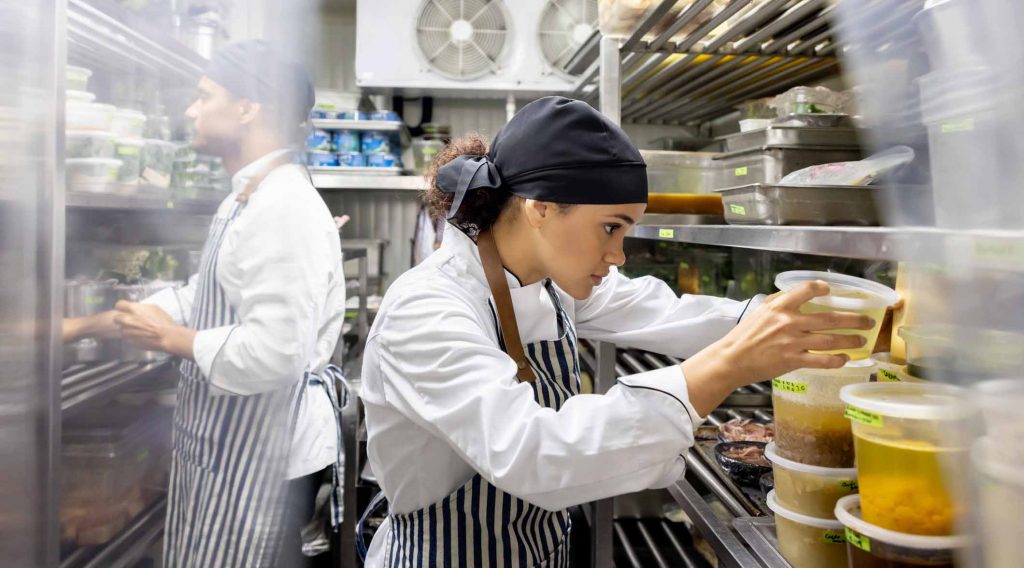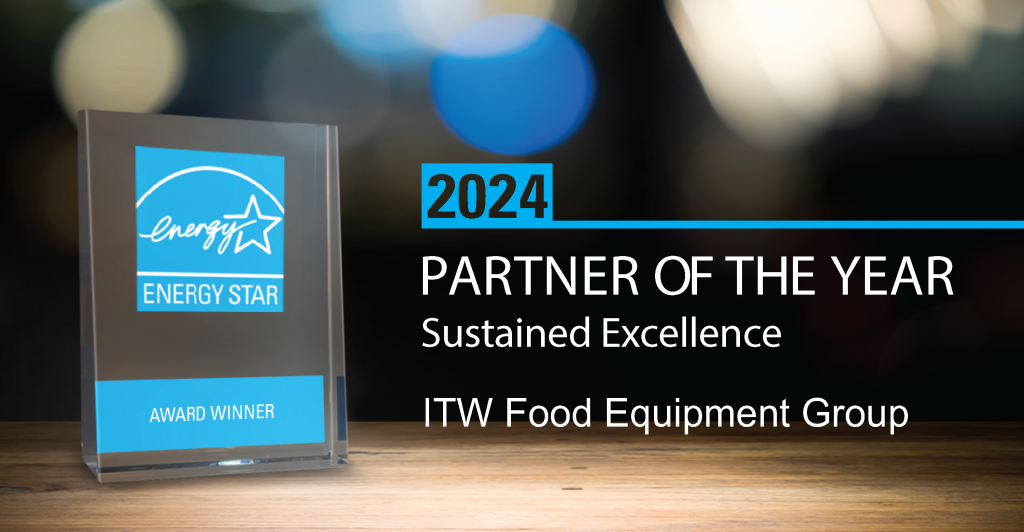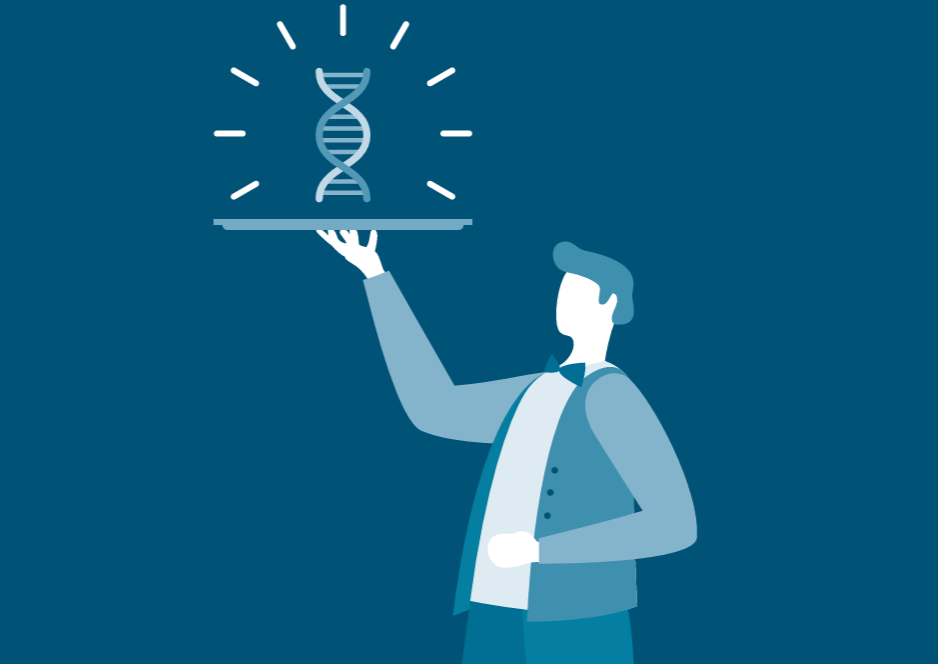
As the foodservice industry ups its game in its quest to reduce energy consumption, cut waste and operate more sustainably, some companies are leading the way. In opening up new avenues to deliver, increase use of recyclable materials, waste reduction and energy reduction, these companies are helping to define the future direction of the foodservice sector.
Loopcycle
The platform for tracking the lifecycle of equipment The raw materials that go into foodservice equipment all too frequently go to waste. When cookers and refrigerators reach the end of their life they are frequently dumped in landfill, though many of their components and the materials used to make them could be reused or recycled.
Ironically, this problem can be exacerbated by the move to replace old, less efficient equipment with new machines to reduce energy consumption and improve the industry’s sustainability credentials. Loopcycle aims to trace products, wherever they go, to increase business efficiency and circularity in the supply chain.
Frequently, manufacturers only know where a fraction of their products go, but Loopcycle connects manufacturers with clients and distribution partners to help recover valuable resources from the end of the supply chain. When commercial equipment reaches the end of its life, Loopcycle helps suppliers to navigate the complex second-hand market through secure and traceable exchanges, making the process of tracing, managing, and recovering equipment simpler and faster.
The company, which provides an easy-to-use digital platform to create visibility and direct interactions between its members, calls it ‘a circular revolution for commercial equipment’ and has already engaged key stakeholders, among them Electrolux Professional.
Product details are logged on a database at the point of manufacture, ownership, or resale. This embeds traceability into each unit, which has a unique ID – a Cyclecode. That ID can be scanned using a smart device, making it easy to monitor and measure end- of-life product impact, build stronger relationships between manufacturers and operators, and manage inventory more effectively across multiple sites. In 2022, Loopcycle joined UKHospitality, with which it will work to develop its track-and-trace technology.
Notpla
The company that makes packaging disappear Developed with the help of Skipping Rocks Lab, an entrepreneurship center at Imperial College London, Notpla has created a range of packaging made from one of the world’s most renewable resources – seaweed.
Seaweed is a globally abundant and fast-growing sea vegetable that grows without fresh water, land, or fertilizer. Unlike other packaging materials, it is not resource-intensive to grow and, crucially, is not reliant on extractive industries in the way many plastics are.
As the company states: “This sea vegetable is one of our greatest weapons against climate change – reducing ocean acidification and effectively absorbing carbon.”
Notpla is ‘not plastic’. That is why it offers a host of benefits after use. Notpla a non-chemically modified, polysaccharide-based material that has been classified under European Union law as a natural, organic substance. After use, it can be disposed of safely, as it is biodegradable and home compostable. When thrown in the trash it breaks down and disappears.
For any foodservice operator looking to limit single-use plastics in its packaging, Notpla’s range of packaging materials makes environmental sense, but performance is also a key issue. Does the packaging hold up to the demands of foodservice? The answer is yes.
Most takeaway boxes are covered with a plastic coating or materials that contain per- and polyfluorinated alkyl substances (PFAs). These are known colloquially as ‘forever chemicals’ – they cannot be digested by bacteria, destroyed by fire or diluted by water. They can persist in water, soil, and air. They can also find their way into the food chain. Notpla’s coating offers a biodegradable alternative while retaining the same grease and water-resistant qualities of traditional coatings used in takeaway food packaging.
LightFry
The revolutionary concept for deep-frying Developed by an innovative company in Sweden, LightFry comprises a range of fryers that can help foodservice operators save money and reduce energy consumption by cutting oil out of the frying process.
Oil is a risky substance when used in frying. It is hot, flammable and potentially dangerous. Yet it is essential for the creation of both staple meals and some high-end dishes. What would fries be without a deep-fryer full of oil? The answer is, exactly the same, if they are prepared in an air fryer.
LightFry has introduced a revolutionary new concept for deep- frying with hot air in an oven that fries in a 100% oil-free process. The goal is to eliminate the high cost of traditional frying, contribute to a better working environment in the kitchen, and reduce safety risks, as well as reducing the impact of frying on the environment.
For operators, there is an obvious cost advantage to air-frying. First, the cost of buying oil is eliminated. Second, the company promises energy savings of up to 50%. Its performance monitoring process has identified that cooking constantly for one hour, a LightFry unit consumes 9.5kW of energy, while its standby energy consumption is 1kW/ hour – significantly lower than a deep-fat fryer.
In terms of sustainability, LightFry not only offers energy savings, but by reducing the reliance on oil – particularly palm oil – it is helping to limit the amount of deforested land used to produce the oil. Along the supply chain, it also helps to reduce the environmental impact of transporting the oil. At the back end, there is no need to remove and dispose of waste oil.
As the company states: “If we can help to significantly reduce energy consumption and optimize the use of natural resources such as the extraction of plant-based oil and reduce deforestation for oil production – we can make a significant contribution to a better world.”
Blackwood: The pizza oven made of recycled materials
In Manchester, UK, a company has been turning to history to create a range of pizza ovens with its eyes fixed on a more sustainable future. Blackwood Ovens makes its pizza ovens from recycled materials from the bottle kilns of Stoke- on-Trent, Staffordshire, UK.
Once a key tool in the heyday of the British pottery industry, the bottle kilns could reach temperatures of up to 1,250°C in the firing process. Inside, pottery would be laid on kiln furniture – also called refractory shelving – which could only survive two firings. From this kiln furniture and waste ceramic firing pins, Blackwood creates the super-thermal material from which its ovens are made.
The material from the furniture is ground down and perlite, high-alumina cement and waste ceramic firing pins are added to create a strong, energy- efficient thermal mix.
Those ovens are designed with an unusual parabolic shape that is designed to maximize the efficiency of heat distribution. The thermal mix from the kiln furniture is molded into a base with four 100mm segments and a 40mm bottom layer of ceramic fibreboard insulation to reduce heat loss. Then, 60mm recycled bricks create a cooking base and 100mm high-density ceramic insulation covers the oven’s dome, further increasing heat retention and reducing energy consumption.
According to the company, the [enhanced] ability to maintain and retain heat for longer can reduce operating costs by more than 50%. The use of more than 80% recycled material in the construction of the ovens has a significant impact on carbon footprint, which the company states is reduced by 77%, and there is a major reduction in CO2 emissions compared to traditional manufacturing processes.
Green Eco Technologies: Redefining on-site commercial food waste processing
Over the last two years, Australian company Green Eco Technologies Ltd has been making waves with its WasteMaster unit, which helps commercial foodservice operators drastically reduce the amount of food waste they send to landfill.
The company develops, supplies, and manages innovative, efficient, and environmentally beneficial, on- site solutions for the recycling and repurposing of organic waste as reusable resources. Its goal is to support global initiatives and action to minimize society’s environmental impact, and it is keenly focused on the United Nations’ Sustainable Development Goals (SGDs), particularly those around climate action and creating sustainable communities.
The WasteMaster is a remotely monitored unit that handles commercial food waste processing from beginning to end. Without using any bacteria, additives, or water, it converts the bulk of an operation’s food waste into a virtually odor-free, much reduced quantity of reusable residual material. The principle behind the technology rests on accelerating the process of the food waste’s decomposition by blasting it with charged oxygen molecules. Any moisture is evaporated and vented into the air, leaving a pathogen-free, high-calorific value, nutrient-rich residue.
WasteMaster can reduce the weight of organic waste by up to 80%. The remaining residue is collected by the company and either used as a high- quality compost or is converted into renewable electricity using an anaerobic digester.
The company cites as one of its biggest successes the impact WasteMaster has had at the Four Seasons Hotel Sydney. In less than one year, more than 10 tonnes of food waste were diverted from landfill, and the output helped to produce enough renewable energy to power 480 homes for a day.
One of the key environmental benefits of the system is that it significantly reduces the emissions of methane gas, which is more damaging to the environment than carbon dioxide, that are generated by rotting food waste in landfill. The company hopes to play a key role in helping Australia to halve the amount of food waste sent to landfill by 2030.
Jim Banks




